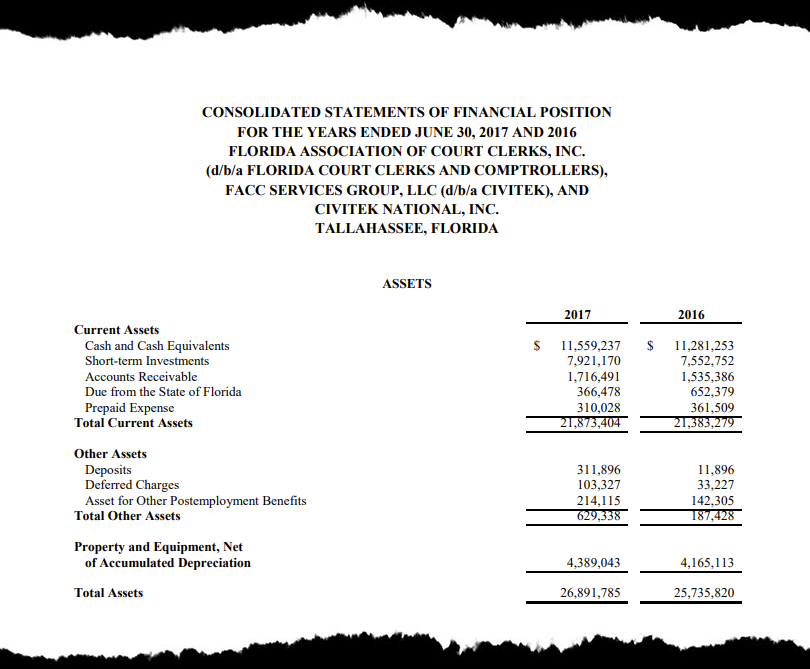TALLAHASSEE, Fla. (CN) — In a two-story brick building, sandwiched between a townhouse community and a small shopping plaza on the north side of Tallahassee, dozens of employees process hundreds of millions of dollars’ worth of electronic payments coming through Florida’s vast court system.
Every time an attorney files a lawsuit, a couple submits divorce papers, or a parent makes a child support payment, and pays with a credit card, this company, CiviTek, charges a 3.5% convenience fee — raking in tens of millions of dollars a year.
Unique from other private businesses that contract with Florida: CiviTek is owned and operated by an association made up of elected officials, the Florida Court Clerks and Comptrollers.
Through this company, Florida’s court clerks have entwined themselves into the daily business of the state’s judiciary, processing an estimated $500 million worth of transactions each year and collecting millions of dollars in “convenience” fees from Florida residents caught up in the courts. These profits pay for the clerks’ special projects outside the budget allotted by the Florida Legislature and outside the purview of public records laws.
“We have an association of elected officials — the clerks of court — and they have created for-profit entities that have collected handsome profits at the expense of Florida citizens who have to access the courts and other government services,” said Jason Cornell, an attorney challenging the arrangement.
The clerks say all money taken in by CiviTek pays for company operations, and extra funds are reinvested into new technology and protect against unforeseen events, like power outages caused by a catastrophic hurricane.
In addition, a portion of profits from CiviTek are distributed to the clerks association directly. The funds are discretionary, meaning they are outside the public budget and can be used on whatever initiative the clerks choose.
But the exact amount of money received by CiviTek and the clerks association is unclear, as is where the funds are spent. The clerks association, a nonprofit, and CiviTek, a Florida for-profit company, are not subject to the Florida Sunshine Law.
Currently, a class action lawsuit brought by two Orlando-area women is working its way through state court in Tallahassee, claiming the clerks created CiviTek to push out competition and charge excessive fees to benefit their association’s goals.
The complaint now pending in Leon County Circuit Court says, “Class members pay these illegal fees unknowingly to private entities formed and controlled by the elected clerks and comptrollers of the state of Florida and the moneys have been spent for the benefit of the association and retained in bank accounts for their future use and all done in a manner that seeks to ensure secrecy.”
Representatives of the clerks say Civitek cuts down on costs and allows for innovation.
“It’s perfectly legal, unlike the allegations or suggestions in the complaint,” said Barry Richard, an attorney defending the clerks association and CiviTek. “The money that they receive does not go back to the clerks. It’s retained and utilized for public purposes, and in fact, results in a reduction in costs to the taxpayers.”
The Florida Court Clerks and Comptrollers created CiviTek in 1991 to “provide enterprise services and project management services, including information technologies” to the clerks of court, according to association documents.
A seven-member board comprised of court clerks from across the state manages the company.
CiviTek offers docketing programs for local courts and technical support to the clerks, and also has multimillion-dollar software contracts with other state agencies. But the lion’s share of Civitek income comes from convenience fees charged when anyone pays with a credit card or electronic check through a handful of websites:









